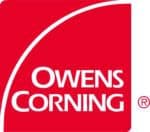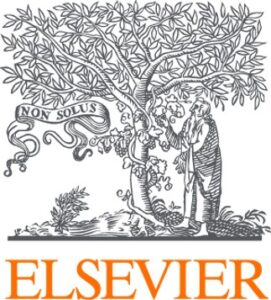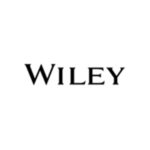SYMPOSIUM 1: FUNDAMENTALS OF THE GLASSY STATE
This symposium will provide a discussion forum on fundamental principles of glass science. Contributions covering experimental and theoretical developments in the field of glass science are welcome. Topics of interest include novel developments in the following sessions.
- Glass Formation and Structural Relaxation
- Glass Crystallization and Glass-Ceramics
- Structural Characterizations of Glasses and Melts
- Atomistic Simulation and Predictive Modeling of Glasses
- Data-based Modeling and Machine Learning for Glass Science
- Mechanical Properties of Glasses
- Glass Under Extreme Conditions
- Chalcogenide Glasses and Amorphous Materials
- Metallic Glasses
- Sol-Gel and MOF Glasses
SYMPOSIUM 2: GLASS AND INTERACTIONS WITH ITS ENVIRONMENT – FUNDAMENTALS AND APPLICATIONS
This symposium is dedicated to fundamentals and applications of how glass is used in contact with specific environments, e.g., with the human body, how glass surface and interfaces evolve or can be modified in different environments, and how glass can be used to contain other materials and prevent their release in the environment.
- Glasses, Glass-Ceramics, and Glass-based Biomaterials
- Dissolution and Interfacial Reactions
- Glass Surfaces, Interfaces, and Coatings
- Materials for Waste Immobilization
SYMPOSIUM 3: OPTICAL AND ELECTRONIC MATERIALS AND DEVICES – FUNDAMENTALS AND APPLICATIONS
Optical and electronic materials and devices are of critical importance for various applications, including sustainable energy, information technology, nonvolatile memory, sensing, medical diagnostics and treatment, and national defense. This symposium will address processing and properties of optical and electronic materials as well as design, fabrication, and performance of functional devices.
- Laser Interactions with Glasses
- Charge and Energy Transport in Disordered Materials
- Optical Fibers and Waveguides
- Optical and Optoelectronic Glass-based Devices
- Rare-earth and Transition Metal-doped Glasses and Ceramics for Photonic Applications
SYMPOSIUM 4: OUTREACH, GLASS TECHNOLOGY, MANUFACTURING, RECYCLING AND CROSS-CUTTING TOPICS
Glass can be engineered with a wide range of properties and in many different forms for both active and passive applications for current and emerging energy and environmental technologies. This symposium will draw an arc from the fundamental approaches (interplay of theory, modeling and experiment) via material properties (compositional influences and signatures) and their characterization (in-situ, ex-situ) to manufacturing (novel processing techniques). A further important component of this symposium is a session on outreach because such a discussion will allow the field to attract a substantial pool of future researchers on glass science.
- STEM Outreach
- Challenges in Glass Manufacturing
- Additive Manufacturing of Glass
- Recycling and Sustainability
SYMPOSIUM 5: DELBERT DAY HONORARY SYMPOSIUM
This symposium stands as a tribute to the remarkable legacy of Delbert E. Day, celebrating his profound impact on the realm of glass science and technology, marked by pioneering applications that have reshaped the field. Through this event, we aspire to create a dynamic platform that facilitates engaging dialogues among researchers centered around themes that mirror the expansive scope of his work. The symposium will delve into a spectrum of subjects closely aligned with the essence of his lifelong endeavors, embracing facets such as the structural characteristics of oxide glasses, nucleation and crystallization of silicate glasses, borate and phosphate glasses, nuclear waste glass, bioactive glasses as delivery devices, and biomedical applications of glass and glass-ceramics.
Organizers:
- Kisa S. Ranasinghe, Kennesaw State University, USA [ kranasin@kennesaw.edu ]
- Qiang Fu, Corning Inc., USA [ f uq2@corning.com ]
SYMPOSIUM 6: MARK DAVIS HONORARY SYMPOSIUM
Mark J. Davis possessed an inspiring mind that was equal parts scientist, teacher, connector, and trailblazer. As a trained geologist, Davis devoted his scientific endeavors to the study of nucleation phenomena. Further, he made side steps into numerous other topics of study in glass science, in particular laser glass and optics. In all areas, significant contributions were made and progress was enabled. Outside of the laboratory, Davis made contributions to the greater materials science community via service, chairing, and organizing meetings of the ICG Technical Committee “Crystallization and Glass-Ceramics” (TC7) and the ACerS Glass & Optical Division (GOMD). Here, Davis was especially concerned with encouraging and intensifying the mutual exchange between academia and industry, as well as forging the connection between students and established researchers across the globe. This session, honoring Davis, aims to blaze the trail of his profound scientific and personal legacy in the education, science, and industry of glass and glass-ceramics.
Organizers:
- Ina Mitra, Schott, Germany [ mitra@schott.com ]
- Bill James, Schott, USA [ james@us.schott.com ]
GOMD 2024 STUDENT ACTIVITIES
Poster session and student poster competition
As part of the tradition at GOMD 2024, students are invited to present their work as part of the GOMD student poster competition Best posters will be rewarded with cash awards. Poster abstracts should be submitted under the session topic most closely related to the research described in the abstract.






